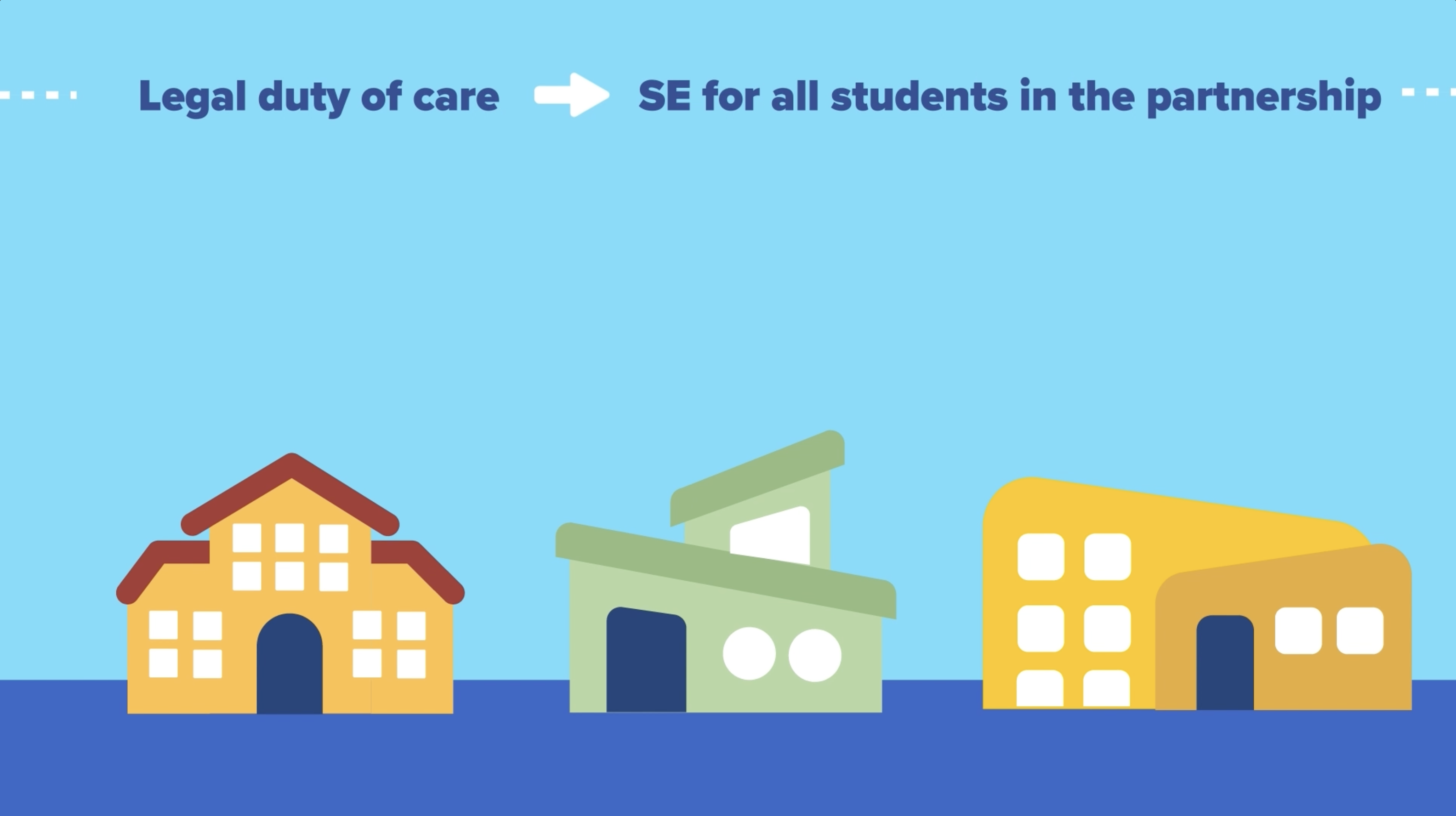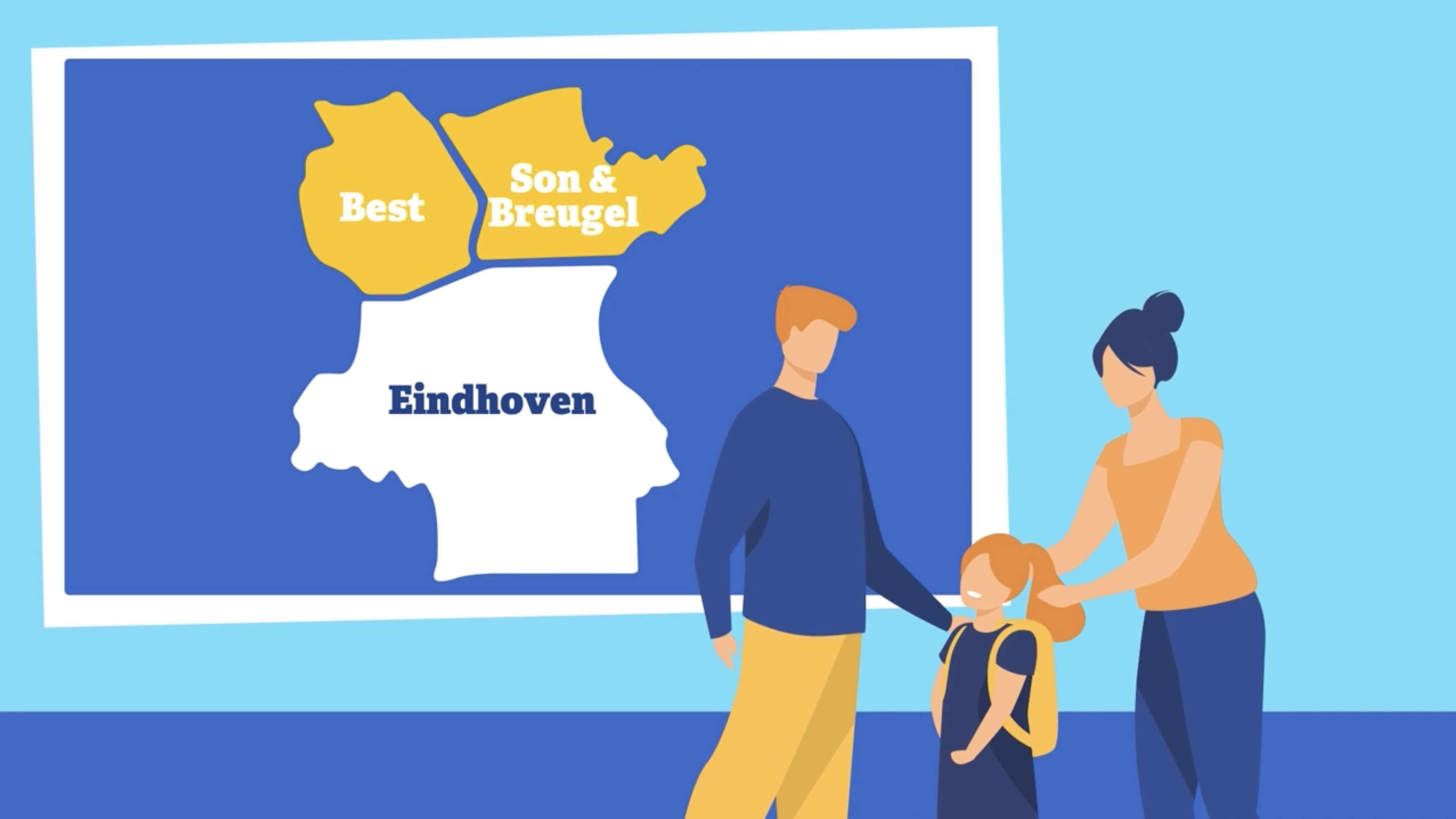Information
for
parents.

Appropriate education for your child.
Know who to call!
- All
- Boards
- Primary school
- Special primary school
- Special school
Frequently asked questions
How can I register my child?
Parents can enroll their child at a school of their choice. This can be a school close to home, or a school that matches the identity of the parents. What a school has to offer in support options is described in the school support profile (SOP). This SOP is published on the school's website.
Every school offers parents the opportunity to register their child in writing. When registering, parents are obliged to provide the school with all the information that the school needs to determine the support needs of the child.
As a parent, you have the right to register your child at a school in writing at any time. If there is no registration form on the school's website, send the school an e-mail with the request to send you an application form immediately.
When applying, keep in mind that it can take up to ten weeks before a school has examined whether a child can be enrolled. If an admission statement (TLV) is needed, an additional six weeks will be added.
When does a school's care duty start?
Is extra support available for my child?
What is a Development Perspective Plan (OPP)
Can my child transfer to another school?
Can I register my child at an SBO or SO school of our choice?
Is transfer to a lighter form of educational support possible?
Can I contact school boards with questions about appropriate education?
Can I ask an Appropriate Education Coordinator for advice?
Do I have a say in the support plan?
What is appropriate education?

The partnership provides all students with the opportunity to attend a school that is suited to their abilities and qualities. By offering appropriate education, the schools ensure that our students can get the best out of themselves. Schools therefore also offer extra support to students who need it.
With appropriate education, the government wants to achieve that:
- all children are given a place that suits their abilities and support needs;
- a child attends an ordinary (regular) primary school if possible;
- a child goes to special (primary) education if more intensive support is needed;
- schools have sufficient options for customizable educational support;
- the child's qualities and educational needs are decisive, not the limitations;
- children no longer sit at home for long periods, because there is no suitable place for them to receive education.
Schools have a care duty. This means that the school where a child is enrolled or registered in writing is responsible for providing a suitable place to study. If a school itself cannot provide the support that the child needs, the school and parents will look for another school that can.
Schools should at least provide basic support. This is the support that all schools within the partnership offer. In addition to basic support, schools also provide extra support to students. A mandatory personal development perspective plan (OPP) increases the quality of education and informs parents of the additional support and goals offered to their children.

How does the partnership work?
Fourteen school boards, with schools in Best, Eindhoven and Son & Breugel, together form the partnership appropriate education PO Eindhoven. These school boards choose to design appropriate education as much as possible within their own school board and according to their own school board vision.
The goal of the partnership is to ensure that all students can grow up together and close to home to live, learn, play and work together.
The vision is that each school board takes responsibility for appropriate education in its own way. This creates diversity in the options that are offered. This vision means that each school board shapes and organizes appropriate education in its own way. The school boards work together to ensure that every student receives a suitable education place. Preferably at a primary school close to home, or in line with the identity of the parents. And if special education is better for the student, there is a suitable place at a special (primary) school.
The partnership transfers funds to the school boards for appropriate education. And ensures that all school boards comply with the joint agreements. These agreements are described in the support plan (OP) of the partnership.
TLV application: how does that work?

To be admitted to special primary education (SBO) or special education (SO), an admission statement (TLV) is required. Each school can request a TLV from the partnership.
There are some legal rules that a TLV application must comply with. Each partnership can define its own rules.
TLV applications for students who want to start at an S(B)O school immediately after the summer holidays must be submitted BEFORE 24 May 2024. If the application is submitted later, it cannot be guaranteed that the TLV will be issued before the summer holidays.
The partnership has a digital application for applying for a declaration of admission. For an abbreviated view of the procedure, see the video above.
A detailed description of the TLV procedure can be found in the appendix of the support plan.
